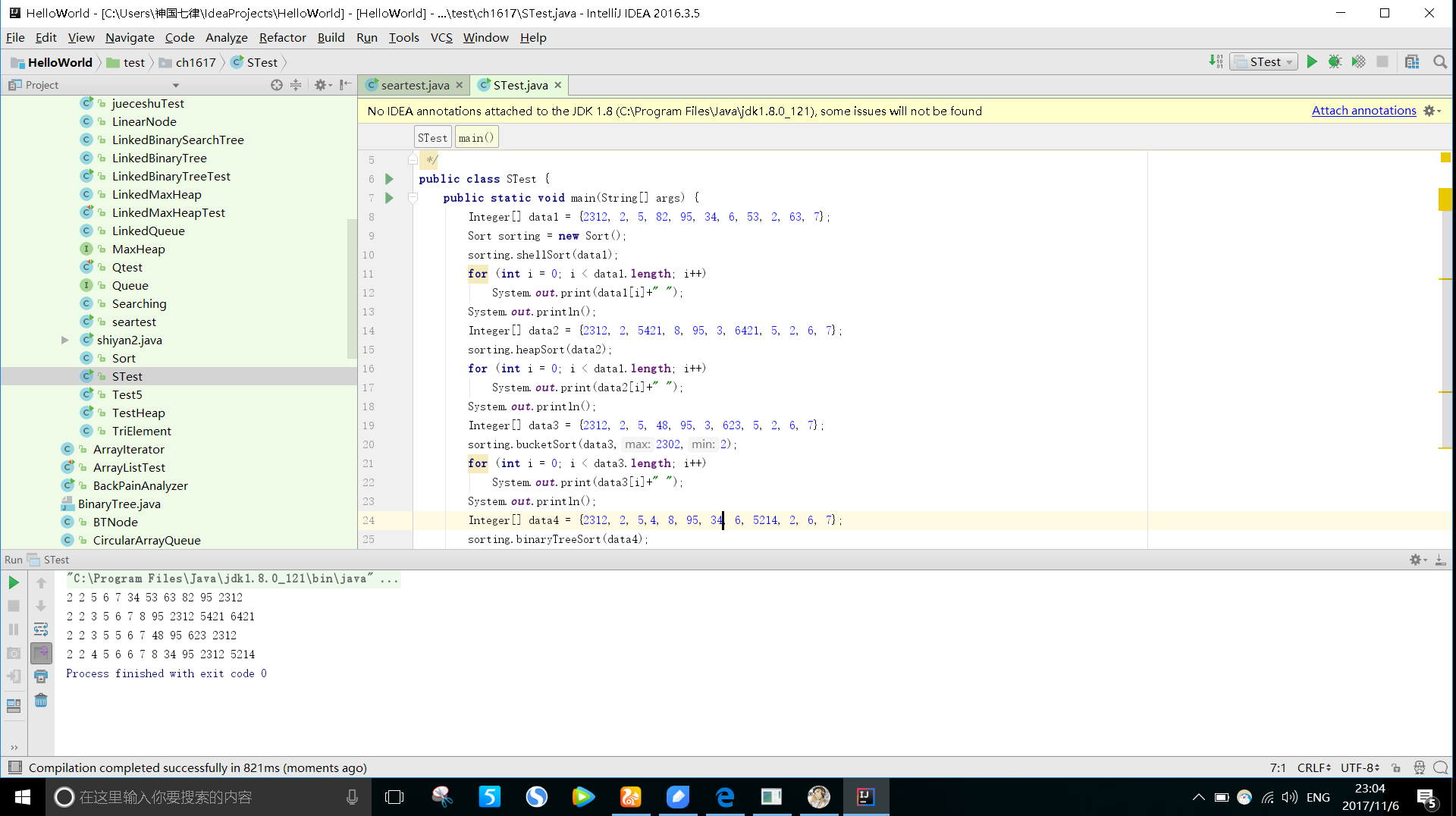实验一
要求:完成教材P302 Searching.Java ,P305 Sorting.java中方法的测试
不少于10个测试用例,提交测试用例设计情况(正常,异常,边界,正序,逆序),用例数据中要包含自己学号的后四位
实验思路:这些代码之前作业就写过,只是改了部分测试用例,没有什么问题。
实验截图: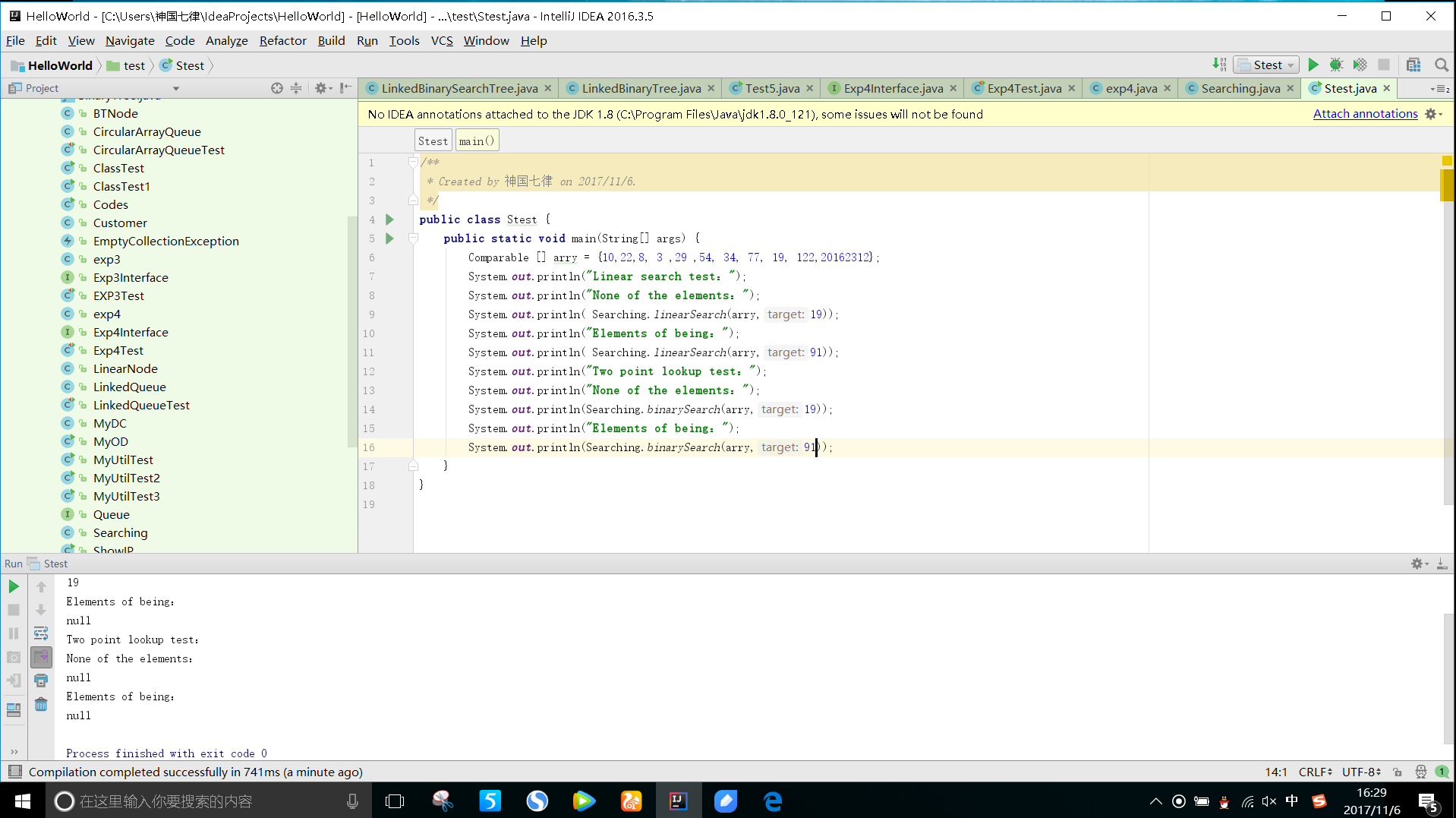
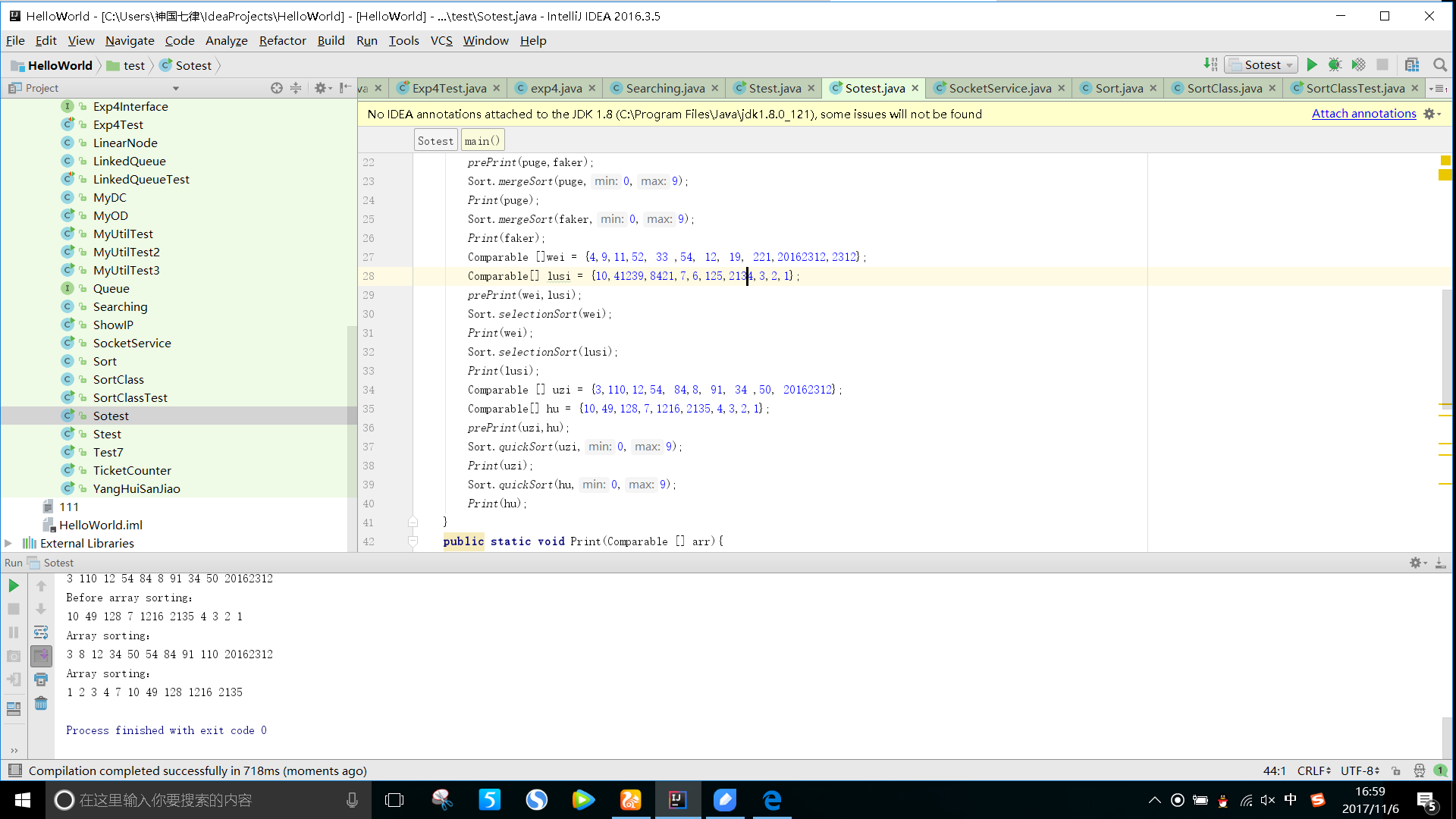
实验二
要求:重构你的代码
把Sorting.java Searching.java放入 cn.edu.besti.cs1623.(姓名首字母+四位学号) 包中
把测试代码放test包中
重新编译,运行代码
实验思路:我的命令行出现了些问题,总是出现非法字符,最后我把代码拷到同学的电脑上重构运行截图。
实验截图: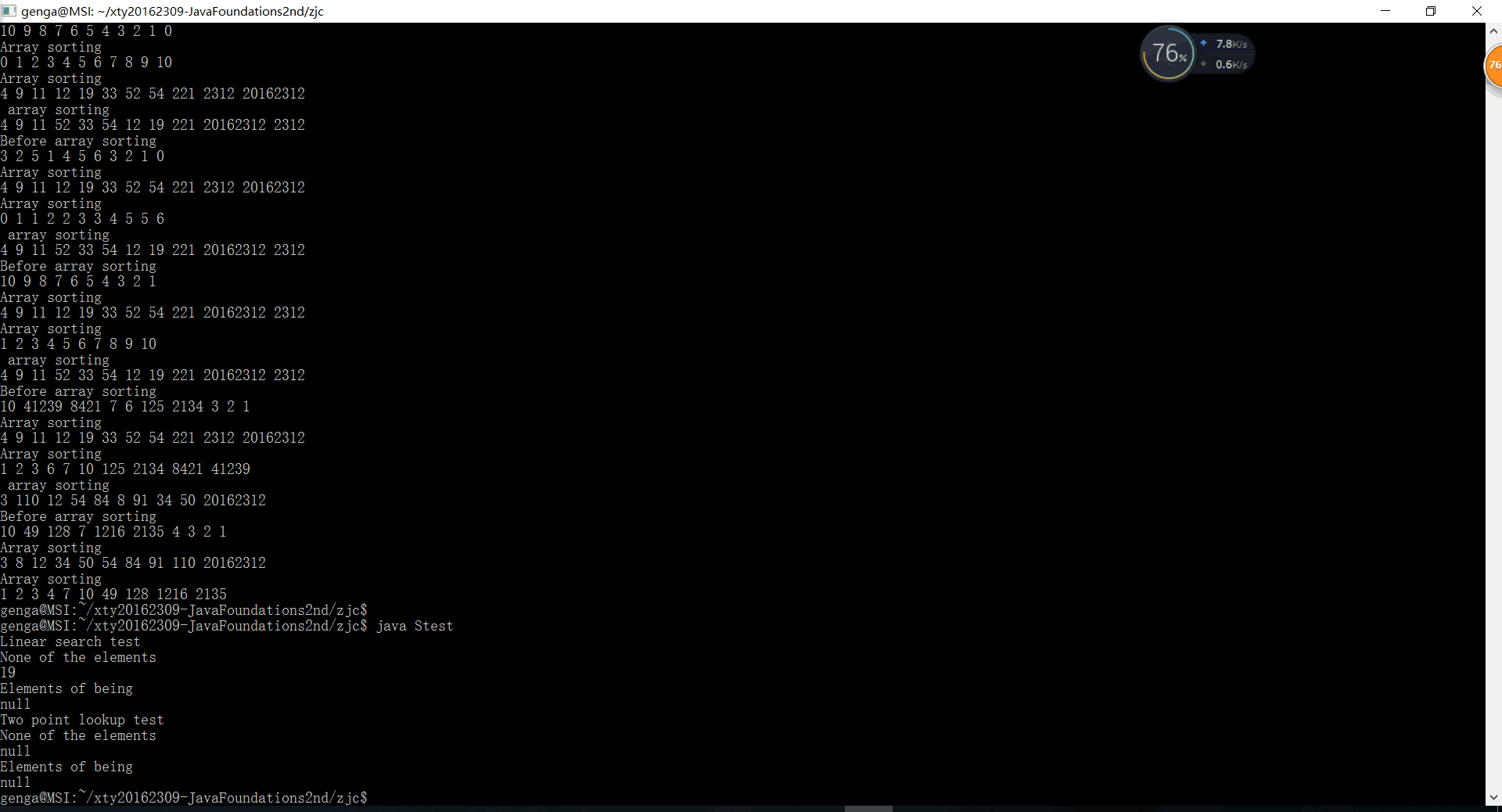
实验三
要求:参考 http://www.cnblogs.com/maybe2030/p/4715035.html 在Searching中补充查找算法并测试
实验思路:这个实验的主要问题是斐波那契数列的实现,从第三位开始的数字是它前两位的和,随着元素个数增多越来越接近需要的黄金比例,参考代码实现:
/* 输出:9 */
static int FibonacciSearch(int [] a, int n, int key){
int [] F = {0,1,1,2,3,5,8,13,21,34,55,89,144,233,377,610,987};
int low, high, mid, i, k;
low = 1;
high = n;
k = 0;
while (n > F[k]-1) /* 计算n位于斐波那契数列的位置 */
k++;
while (low <= high) {
mid = low + F[k-1] -1;
if (key < a[mid]){
high = mid - 1;
k = k - 1;
}
else if (key > a[mid]){
low = mid + 1;
k = k - 2;
}
else {
if (mid <= n)
return mid;
else
return n;
}
}
return 0;
}
实验截图: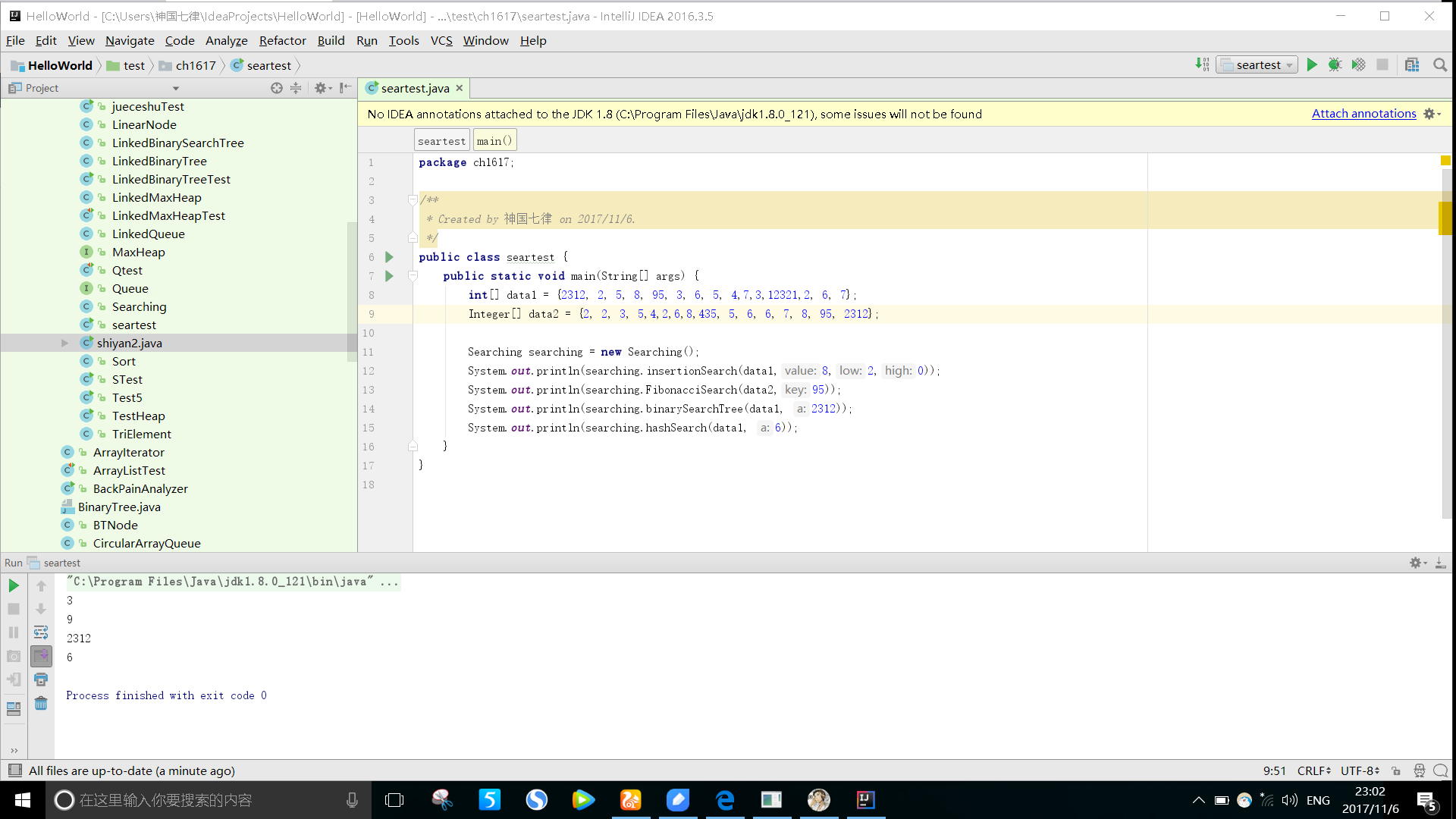
实验四
要求:补充实现课上讲过的排序方法:希尔排序,堆排序,桶排序,二叉树排序等
测试实现的算法(正常,异常,边界)
实验思路:堆排序、桶排序主要参考PPT里的代码,二叉树排序之前实现过二叉查找树,调出中序遍历即可,希尔排序我又回去看了一下之前的课件,加深了理解
希尔排序:

堆排序:
// 堆排序
public static void heapSort(Integer[] data)
{
for (int i = 0; i < data.length; i++)
{
createMaxdHeap(data, data.length - 1 - i);
sw(data, 0, data.length - 1 - i);
}
}
public static void createMaxdHeap(Integer[] data, int lastIndex)
{
for (int i = (lastIndex - 1) / 2; i >= 0; i--)
{
int an = i;
while (2 * an + 1 <= lastIndex) {
int biggerIndex = 2 * an + 1;
if (biggerIndex < lastIndex) {
if (data[biggerIndex] < data[biggerIndex + 1]) {
biggerIndex++;
}
}
if (data[an] < data[biggerIndex]) {
sw(data, an, biggerIndex);
an = biggerIndex;
} else {
break;
}
}
}
}
public static void heapSort2(int[] data)
{
for (int ch = 0; ch < data.length; ch++)
{
createMaxdHeap2(data, data.length - 1 - ch);
swap(data, 0,data.length - 1 - ch );
}
}
public static void createMaxdHeap2(int[] data, int lastIndex)
{
for (int i = (lastIndex - 1) / 2; i >= 0; i--)
{
int j = i;
while (2 * j + 1 >= lastIndex) {
int biggerIndex = 2 * j + 1;
if (biggerIndex > lastIndex) {
if (data[biggerIndex] > data[biggerIndex + 1])
{
biggerIndex++;
}
}
if (data[j] < data[biggerIndex])
{
swap(data, j, biggerIndex);
j = biggerIndex;
} else {
break;
}
}
}
}
桶排序:
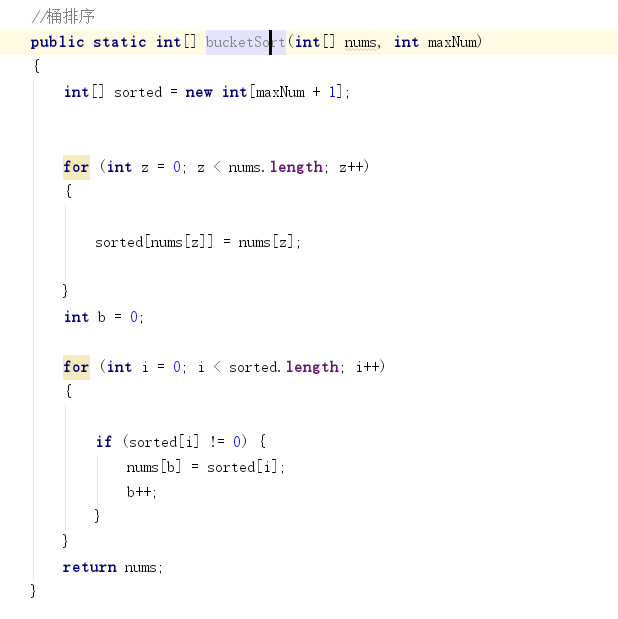
二叉树排序 :

